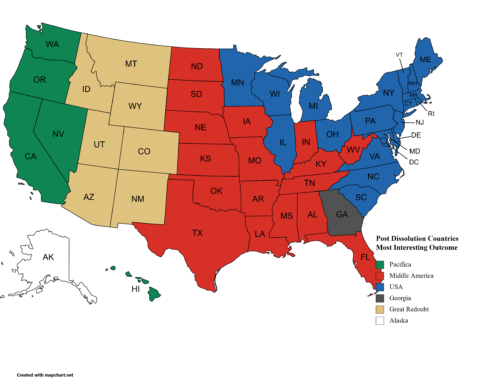Transparency. How much light gets through. Can you see what is on the other side of the divide?
Perhaps no concept brings on headaches for senior leaders. Perhaps no concept brings on hesitation from investors. Perhaps no concept makes workers wonder whether their jobs will be secure in the future.
Why? Why should I as a senior leader give my competitors an insight into what I am doing and thus give up some of my competitive advantage? Why should I as a CEO allow my subordinates to know how I make decisions on promotions and assignments? Why should I ever have any expectation that anyone, be it my boss, my city council, my bank, allow me insight into decision-making?
It comes down to the one aspect of human interaction that is perhaps more important than any other: trust.
Trust is what makes the financial system actually work. I don’t think for a minute that my local bank branch has the money on hand to cover all accounts. But I trust that if I go to that local branch today and ask to empty my account, I will have that money in hand the same day, or by the time the bank promised to give me the money when I opened the account.
Trust is what helps the hourly or salaried worker get up in the morning and go to work in uncertain times. It is that trust which makes share holders confident that eve if the decisions are not ones they would have made, they were made in the best interest of the company and all stake holders.
So where does that trust come from? Transparency.
Most anyone can tell you that if someone is unwilling to tell others how a process is conducted or how a decision is made, there is likely something shady going on. If that shadyness leads to personal gain at the cost of public trust or some abuse of power, then that is the definition of corruption. Corruption is such a major issue that it brings down corporations, politicians and whole governments. Transparency International is an organization solely dedicated to fighting corruption globally, so serious is this problem.
Look, we all want to be certain that when we call the police, they will actually investigate what happened, and not look the other way because they are on the payroll of some gangster. We want to know that when we invested our money for retirement savings into a fund, it wasn’t merely going to enrich the manager and select investors through a pyramid scheme. We want to know that when laws are passed, legislators considered the greatest public good, rather than the narrow interest of a wealthy lobbyist to enrich the few at the detriment of the many.
As business and government leaders, we want to be on the right side of history. Or at least ought to want to be. Lets set aside the fact that we can go to jail for illicit practices. For some, the risk of losing solid clients for the chance to make a bunch of quick money in a shady deal a risk worth taking. For some, the prospect of your kids or grandkids asking how you made your money is of no concern when there is no shame. Not so for me. Not for my clients.
Transparency is hard. You open yourself up to scrutiny at every step of every process you engage in. Others can call you out for your mistakes. If you really mess up, you might be shamed. But transparency is also liberating. When you know others are watching and scrutinizing you, when you know all your decisions are visible in the present and as studies in the future, you aren’t nearly as tempted to stray down the path of corruption. It is easier to do the right thing when you know people are watching. And you should welcome that scrutiny.
Yes, yes, some processes and decisions require secrecy. National security. Certain financial transactions or personnel moves require discretion or secrecy. But even then, the process ought to have some level of oversight so that decisions are reviewable by some impartial board or entity.
In business, our clients and partners want to know that they are in a relationship in which they won’t be tainted by someone else’s stain. Some might be surprised how much more a company is willing to pay to partner with another they know is always transparent in their dealings and clean from corruption rather than spending less and not knowing if their partner is clean and will take them down as well.
So what can you do? First accept that sunlight is a great disinfectant. Lead by example and show your employees and business partners that you welcome scrutiny by being transparent in your processes and decision-making. Develop procedures for the tasks that you perform and ensure those procedures are public. Review them periodically and make sure your people actually follow them. Ask questions. Ask your people and your business partners how they do what they do. If they can’t or won’t tell you, or are evasive, you know you have an issue to work on.
Oh, and don’t think you will be applauded for being transparent. There are a lot of reasons, very few of them any good, that people will come up with for opposing your quest for transparency. You’ll have to be ready for it. You can affect the culture within your own organization, but your partners or associates over whom you have no authority may not like where your quest for transparency leads. Be ready to end some relationships and find new partners. That is a sad reality that many leaders have had to live through. But transparency is a strong shield and those that fight it almost always draw scrutiny to themselves.
As we’ve said before, Truth doesn’t change based on the rank of the recipient. If something seems skeevy, it probably is. If you are a senior leader and you expose your own mistakes and then take corrective measures, you will be remembered for having fixed the problem openly far more than you are remembered for the problem itself.
Keep thinking…






Leave A Comment